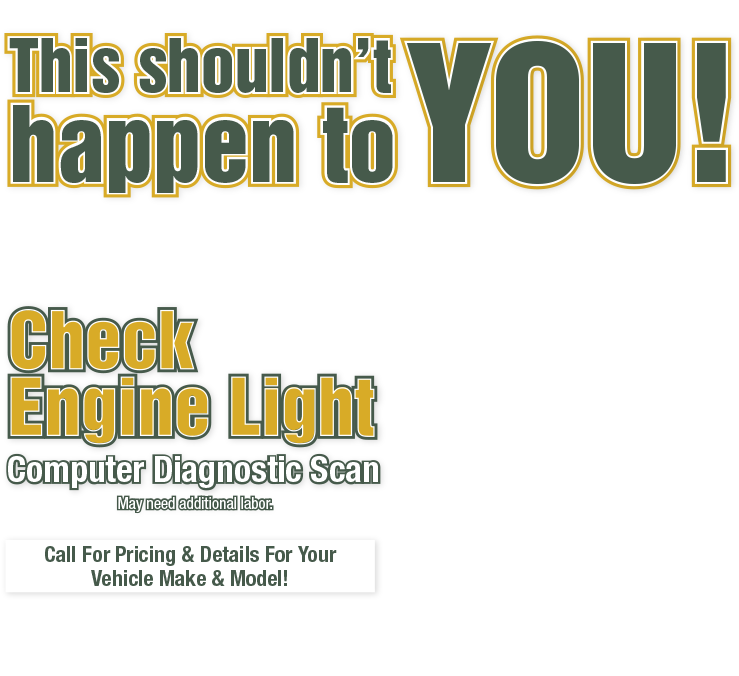The Truth about Tire Pressure (Tire Inflation)
November 6, 2022
Most light vehicles (under 10,000 pounds/4,500 kg) in North America sold from 2008 model year on have a feature that many people are confused about. It's the tire pressure monitoring system (TPMS). You may have some experience with it yourself if you own a newer vehicle. Vehicles with TPMS have sensors in each tire that are supposed to warn the driver when tire pressure gets dangerously low. That's important because tires that are significantly under-inflated can cause very serious accidents.
Unfortunately, many drivers think the TPMS does all the work keeping track of tire pressure. To them, as long as the warning light or gauge isn’t giving a warning, the tires must have the proper amount of air pressure in them. That's not the case.
Tire pressure monitoring systems aren't all created equal. Some give you a digital readout of the pressures in each individual tire. But many simply have a warning light that looks like the cross section of a tire with an exclamation point in the middle. If you don't know what it is, it's because it's not instantly recognizable as a tire. In fact, one company that makes TPMS, Schrader Performance Sensors, surveyed drivers. Their study showed that more than 40 percent of drivers didn't know that that warning light was.
One out of 5 of the drivers who did know what the light was only looked at their tires after the light came on to see if they could see any that needed air; they never checked them with a tire gauge or had someone else do it. Ten percent of them didn't do anything when the light came on.
In most vehicles with TPMS, the warning comes on only when the tires are more than 25% underinflated. The American Automobile Association says that's under the pressure you need for safe vehicle operation.
The bottom line is once a month you should make sure your tires are inflated to the manufacturer's recommendations. That means each tire should be measured with an accurate, external tire gauge. To be confident you are getting a correct reading, take your vehicle to a reputable service facility where their equipment is calibrated and they know what they're doing.
Severely underinflated tires can contribute to an accident that kills or severely injures people. The idea behind TPMS is well intended, but the system was never meant to replace regular inflation measurements and maintenance. Periodically have your tires checked for proper inflation.
Auto Pro Troy
512 East Maple Rd.
Troy, Michigan 48083
248-270-3002
Need Service?
More articles from Auto Pro Troy Auto Repair

Do I Need Brake Service? (Brake Service)
February 16, 2025
Think of how many times you put your foot on your vehicles brake pedal every day. And think of how much you rely on your brakes to slow down and stop your momentum. When it comes to safety systems, your brakes are at the top of the list, and thats why its so important to keep them in top condit... More

Getting Off to a Running Start (Starter Replacement)
February 9, 2025
When you start your vehicles engine, theres another motor that makes that whole process possible. Its called the starter, and its a small electric motor that gets your vehicle running. As you can imagine, its quite a chore for a little electric motor to turn over the big engine that powers you... More

Braking Good (Brake Drum Replacement)
February 2, 2025
Maybe your vehicle feels like Breaking Bad. In other words, when you brake, things are bad. You may find it takes you a longer distance to stop, you feel a vibration, or its pulsating when you depress the brake pedal, or perhaps your vehicle pulls to one side. Those can be symptoms of failing b... More










